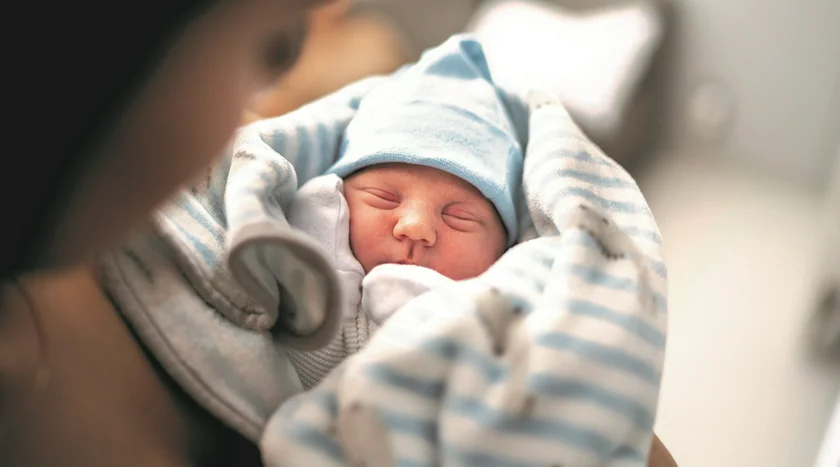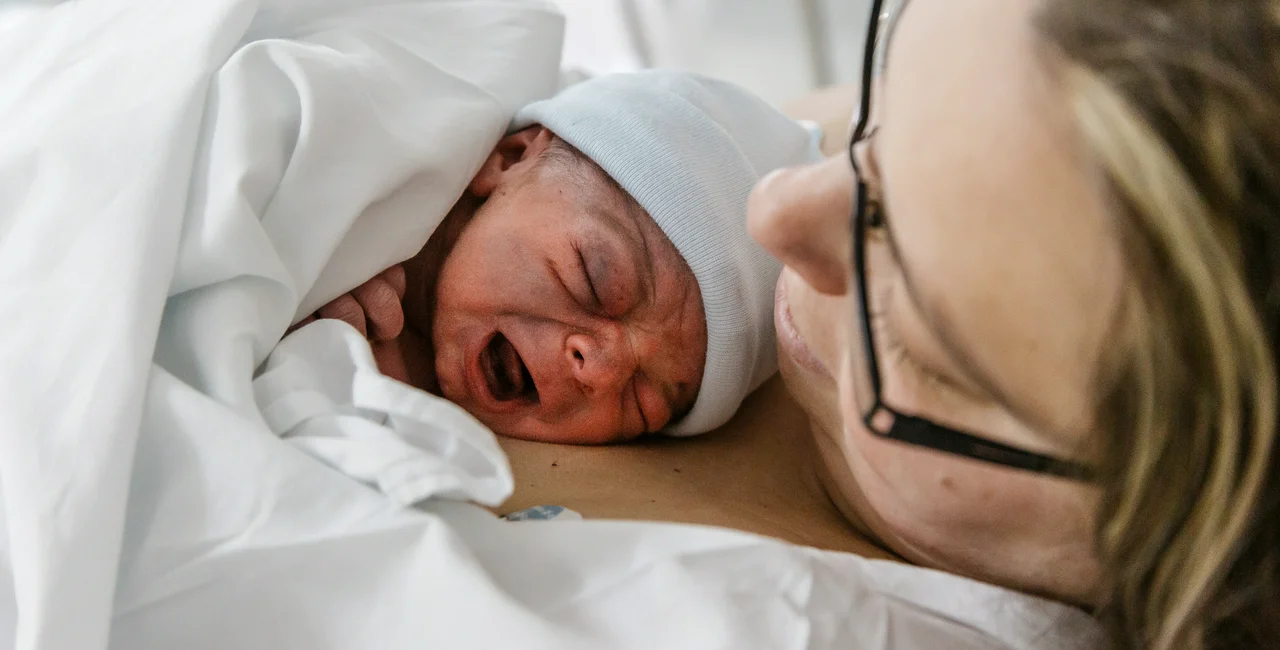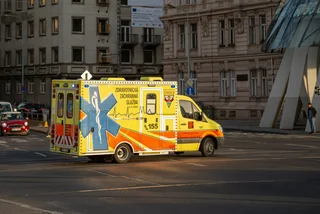Foreigners in Czech maternity wards tend to report mixed experiences. While many Czech hospital staff is accommodating and professional, a general lack of privacy, unwelcoming facilities, language barrier, and terrible food tend to color the overall experience of what's supposed to be a joyful moment.
A number of advances are being made at maternity wards around the country that aim to ensure all mothers-to-be deliver in comfortable surroundings and are given respectful care, though experts say change is slow to come.
PARTNER ARTICLE
A recent campaign launched by the League of Human Rights and the Union of Midwives wants to draw attention to the poor treatment of women in Czech maternity hospitals.
"This is by no means a specifically domestic problem, as it might seem at first glance," says Antonín Pařízek chief physician of the perinatology center at Apolinář, Department of Gynecology and Obstetrics who told ČTK it's an issue across Europe.
The World Health Organization (WHO) states that 80 percent of births can take place without outside intervention, however, in the Czech Republic that ratio is reversed. Women are often forced into an unnatural birth position or are given medication unnecessarily, or are denied contact with their newborn.
The campaign also defines "obstetric violence" as everything from disrespect for privacy to manipulation and psychological pressure by health professionals, to examinations or interventions without the mother's consent or being held in the hospital.
The campaign quotes one among many women who shared their experiences at a Czech hospital saying it no longer wants women to feel like an "incapacitated piece of meat." The initiative outlines safe care as "individualized, informed, and in step with the latest scientific knowledge and practices," among other things.
Czech midwife Ivana Königsmark who previously faced prosecution for conducting home births, says such behavior can have a dire effect on women. "Studies have shown that the traumatic experience of childbirth can have the same consequences as the trauma of soldiers returning from war," says Königsmark.
New data from a survey conducted by the Guide to Maternity Hospitals by Aperio, an initiative devoted to helping families with a number of issues surrounding childbirth, does show some positive trends and patterns in childbirth, breastfeeding, and pre- and post-natal care in Czechia.
More than 5,200 respondents filled out online questionnaires evaluating their maternity hospital in the years 2017 to 2021. The data also reflects the ways in which Covid has impacted the experience of giving birth in Czechia.
Midwives are gaining prominence. Midwives attend 85 to 90 percent of births. While the most common scenario is still for the doctor to deliver labor is led by midwives, midwifery centers are gradually being incorporated into maternity hospitals and separate maternity rooms are being where the mother can stay with her loved ones and have a midwife-led birth, calling the doctor only in case of complications.

In the last two years, Bulovka University Hospital (FN), the Královské Vinohrady University Hospital, and the Thomayer University Hospital have opened similar premises in Prague.
U Apolináře maternity hospital is also modernizing its maternity ward where it will establish a midwifery center and new premises for a center specializing in premature babies.
Skin-on-skin contact is becoming the norm. According to Aperio, in 2017, newborns were given to mothers for skin-on-skin contact immediately after birth in two-thirds of births, last year that number was more than 77 percent.
New mothers are leaving the hospital earlier. While the Ministry of Health recommends releasing women no sooner than 72 hours after birth, more than 13 percent of respondents went home earlier last year, compared to five percent in 2017.
Respondents said that breastfeeding was easier from the comfort of home or expressed dissatisfaction with care in the maternity ward. Seventy-five percent of babies are fully breastfed when leaving the hospital.
Czech mothers are getting younger. The findings show that Czech first-time mothers are getting younger. The average age of first-time mothers in the Czech Republic over the last five years has fallen by almost two years from 30.7 years to 28.8 years.
While this isn't necessarily a positive trend, researchers at Charles Univesrity who recently developed a breakthrough roughly five to ten percent of mothers in the Czech Republic experience serious health complications in recent years due to the growing number of overweight patients and the advanced age of women giving birth.
The newly developed method could improve the screening of pregnancy complications in the first trimester, detecting up to twice as many high-risk pregnancies as the current examination. It can detect the risk of preeclampsia, fetal growth retardation, or high blood pressure during pregnancy.
Attendance at prenatal classes is down. Aperio found that over the past two years, childbirth was affected by anti-coronavirus restrictions, including a noticeable decrease in childbirth classes. While in 2017 almost a sixth of women attended class at the maternity hospital, last year it was only five percent.
Inductions and caesareans are on the rise. Induced labor is gradually increasing. In 2017, a fifth of births was induced, last year more than a quarter. "Among the respondents who had an artificial birth, we found twice the proportion of acute cesarean sections than in women where the birth started spontaneously," the report says.
The proportion of women giving birth on their backs still remains quite high. According to Miloslava Kramná from Aperio, "When women lie horizontally on their backs during delivery, the uterus causes compression of large blood vessels and reduced blood flow can affect the condition of the fetus."
There are about 110,000 births a year in the Czech Republic, and an estimated 90 maternity hospitals, and 12 perinatology centers for the care of premature babies.
Post-natal nutrition is being reconsidered. Minor advances are being seen in the area of hospital food. One maternity ward recently opened a new all-you-can-eat refreshment counter offering cereals, muesli, fruit, milk, kefir, yogurt, butter, cheese, honey, and jam at any time of day or night.
"Following childbirth, it's important for the mother to have a nutritious, varied, fresh diet. The increased intake of dairy products is also a benefit," says Hana Hanzlíková, a midwife in the Strakonice's maternity ward.
To ensure a varied diet that mothers enjoy, the department has long monitored which foods women prefer after giving birth. It said in a press release: "It has become clear that new mothers do not care for typical heavy Czech food, such as dumplings with sauce."












 Reading time: 5 minutes
Reading time: 5 minutes 
























